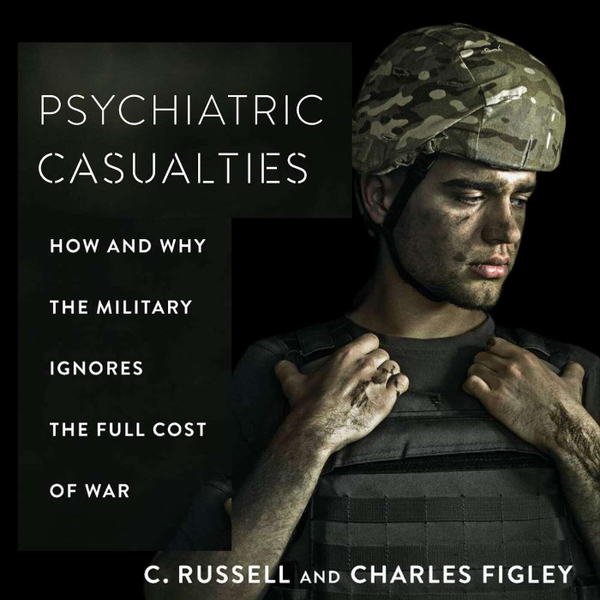
War wounds are not always visible, and the battle scars of the mind can be as debilitating as any physical injury. Mark and Charles open up a long-overdue discussion on the unseen struggles of military mental health, tracing the historical neglect and systemic shortcomings in armed forces' approaches. The conversation is both a history lesson and a current affairs class, as we uncover declassified documents and share from-the-front anecdotes that reveal the stark contrast between lessons learned from physical warfare and the often-ignored psychological aftereffects. Mark and Charles shed light on the depth of these issues, from the repeated cycle of learning and forgetting to the pervasive stigma that keeps our service members from seeking the help they so desperately need.
This conversation is not just about the failures of the past but also about the potential for reform—ensuring that every soldier's sacrifice is honored, not just in medals and commendations, but in the care they receive for all their wounds, seen and unseen.
Table of Contents for Discussion
Have questions, thoughts or suggestions on topics? Email Mark at [email protected]
Tune into our CHW Streaming Radio and the full lineup at cominghomewell.com
Download on Apple Play and Google Play
Online-Therapy.com ~ Life Changing Therapy Click here for a 20% discount on your first month.
Thank you for listening! Be sure to SHARE, LIKE and leave us a REVIEW!
Psychiatric Casualties
This podcast is a clinical exploration into the untold truth of military mental healthcare from two insiders. Join Navy Veteran and psychologist, Mark Russell and Marine Veteran and psychologist, Charles Figley as they explore evidence of preventable generational wartime mental health crises, the "dark side" of the military's long-standing strategies to deal with its mental health dilemma, and what is required to truly transform behavioral health both within and outside of military populations.
Have questions or comments? Email Dr. Mark Russell at [email protected]
Dr. Figley is the Tulane University Paul Henry Kurzweg Chair in Disaster Mental Health. Professor Figley is recognized as one of the foremost experts on trauma and is the recipient of numerous lectureships and other honors in the US and throughout the world. He has published more than 200 refereed journal articles, 29 books, more than 540 presentations, and more than 110 book chapters in his long career. His work draws collectively on more than 37 research projects focusing on traumatic stress, and resilience of individuals, families, and communities. Dr. Figley co-authored Psychiatric Casualties: How and Why the Military Ignores the Full Cost of War with Dr. Mark Russell.
Professor Figley credits his nearly four years in the USMC with maturity building and early insights about human stress and coping and influenced his career as an academic focusing on traumatic stress and the impact on service providers. This, in turn, led to his life-long effort to study the human side of being and caring for others, including war veterans and their families. Today, given his 5 decades as a professor, an author, presenter, and humanitarian, he is considered the “father of trauma” by the American Psychological Association.
Mark is a retired Navy Commander and clinical psychologist with over 26-years of military service including 10-years as an enlisted Marine. He is dual-Board certified by the American Board of Professional Psychology (ABPP) in clinical psychology and clinical child and adolescent psychology. Co- author of Treating Traumatic Stress Injuries in Military Personnel: An EMDR Practitioner’s Guide (Routledge, 2013) and Psychiatric Casualties: How and why the military ignores the full cost of war (Columbia University Press, June 2021) with Charles Figley, and co-authored Eye Movement Desensitization and Reprocessing (EMDR therapy): In 2005, Commander Russell became a military whistleblower after filing a Department of Defense Inspector’s General complaint against the head of military medicine for “harmful gross negligence” resulting in a preventable military mental health crisis. His efforts were featured in USA Today (2007); the 2015 documentary film, Thank You for Your Service! and the 2022 documentary Strangers at Home. He was awarded the Distinguished Psychologist Award by the Washington State Psychological Association and the Meritorious Service Medal by the President of the United States for his sustained effort to transform military mental healthcare, as well as the recipient of the 2018 Outstanding Service in the Field of Trauma Psychology by the American Psychological Association Division 56 Trauma Psychology.